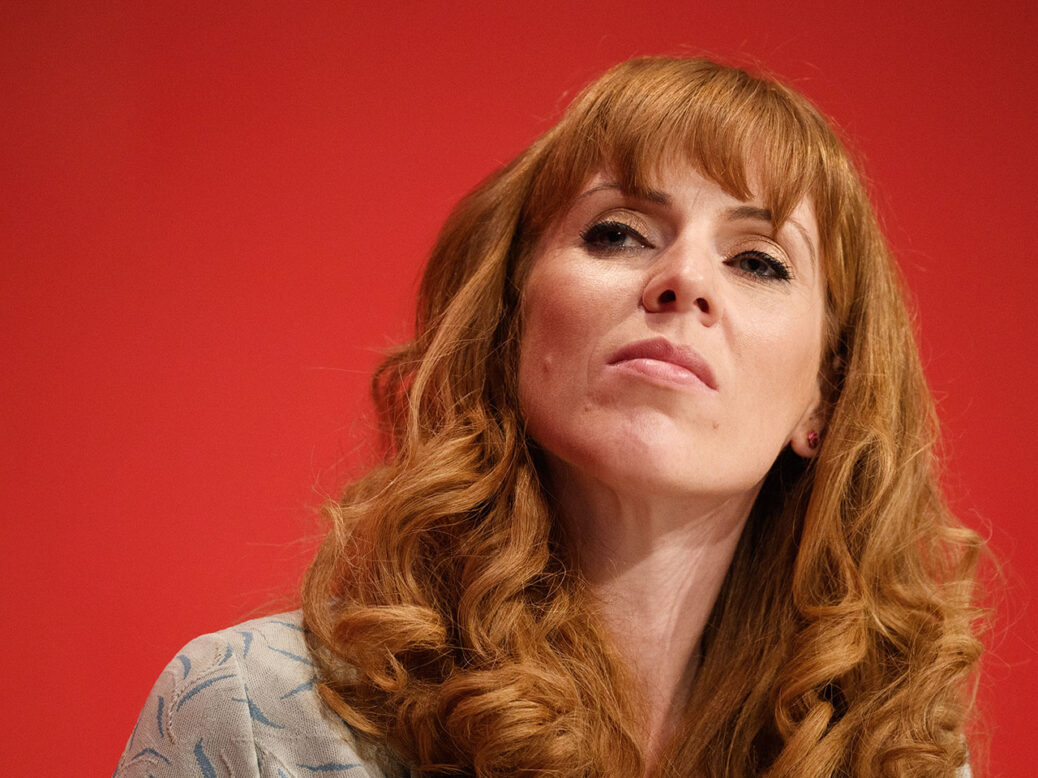
Angela Rayner was introduced to the stage at the annual conference of the Trades Union Congress (TUC) as “one of us”. Labour’s deputy must be feeling very enthusiastic right now, having once again emerged from a Keir Starmer reshuffle with more power than she had before.
After being promoted to shadow levelling-up secretary – a fitting platform for a politician with a compelling story of social mobility – and with her position as deputy prime minister in a possible Labour government confirmed, claims she would be sidelined were wrong.
But it is Rayner retaining her role as “strategic lead” for Labour’s New Deal for Working People – a wide-ranging package of employment and trade union reforms – that allies believe is the real prize. The document, which includes measures such as ending fire and rehire and introducing fair-pay agreements across multiple sectors, is an article of faith for the trade-union movement and was developed alongside them. Many trade unionists bucked when the shadow chancellor, Rachel Reeves, refused to commit to new spending commitments or a wealth tax. That Labour in government will significantly strengthen workplace rights is their price for future cooperation.
Rayner used her speech in Liverpool therefore to underline the party’s “cast-iron commitment” to introduce new rights within 100 days and repeal anti-trade union laws introduced by the Tories since 2016. She also developed a Gordon Brown-style list to remind delegates to stay focused on the task of winning power. She said:
“Day one basic rights, a ban on zero-hour contracts, an end to fire and rehire, family-friendly working, strengthened sick pay, making it available to all workers, including the lowest earners. And from day one, we will go faster and quicker to end the gender pay gap, address unequal pay, tackle sexual harassment at work and put mental health on a par with physical health, and we will bring in a proper living wage, which people can actually live on.”
The speech was met with rapturous applause and a standing ovation. But the conference overall has not been without tension between Labour and unions. There is scepticism that some promised measures may be delayed. Sectoral bargaining, for example, would begin in the care sector and questions over Labour’s pledge to introduce a single status of worker, in order to crack down on rights being diluted in the gig economy.
But whatever the residual doubts, Rayner’s reaffirmation of the New Deal has been enough to calm nerves. Mick Lynch, the face of the latest wave of industrial action, warned at a fringe event that activists must stop “carping from the sidelines”, stop saying Starmer is not “their favourite left-wing politician”, when Labour has put a package of measures on the table.
Rayner’s responsibility for the party’s workers’ rights agenda makes her the politician to command and corral the labour movement. That is important in an election that will be fought on the cost-of-living crisis and will remain so after the vote, when Starmer must deliver not only for a new coalition of voters but his own base. Rayner appears to be keenly aware of this dynamic. Her speech took a few pot-shots at the government, accusing Tory ministers of “failing upwards” and being the “only workers that can get fired and rehired on better terms and conditions”.
But she also underlined that “joining a union changed my whole life”, and that her levelling-up brief was directly linked to better-paid unionised jobs. Though Starmer spoke at a meeting of union general-secretaries, the TUC congress has undoubtedly been “Rayner-fest”.
There is a risk, however, that Rayner’s hero status becomes a problem for her. Yesterday evening (11 September), before her keynote speech today, the deputy leader addressed a rally of TUC delegates. She was introduced by Mick Whelan, general-secretary of the train drivers’ union Aslef, who told the crowd that the deputy’s “name is all over” the New Deal documents. Rayner reiterated the party’s commitments and then said, “If I get to be deputy prime minister of this country, I will not let you down.”
This was a strikingly direct pledge – and no doubt one that unions will hold her to.
[See also: Will Sadiq Khan lose the London mayoral election?]



